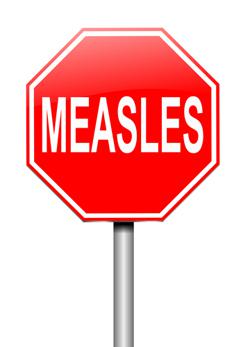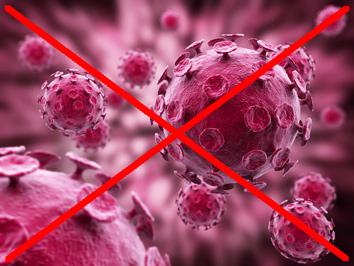When should vaccinations be mandatory?
This question pops up every now and again, and it’s in the news again: 750 students face suspension in the Winston-Salem/Forsyth County school system in North Carolina for not having their TDaP (tetanus, diphtheria, and pertussis) booster. Students must have up-to-date vaccinations or face suspension by state law. I’ll note there is no real financial burden on the families here; the county provides free vaccinations.
And there are a hundred reasons to make sure those students are vaccinated. Literally: According to the Winston-Salem Journal, there have been 98 cases of pertussis in Forsyth county this year, including six infants. Pertussis (whooping cough) is particularly dangerous in very young children; it can kill them. According to the Centers for Disease Control and Prevention, half of infants under one year old have to be hospitalized if they get pertussis, and 1-2 percent die from it.
This is very, very real, and very, very scary.
When it comes to decisions about personal matters, I tend to lean libertarian; your body, your choice. This gets stickier when that choice affects other people, and the situation can be complicated further when other choices are involved; for example, choice of career. Specifically, and on point for this topic, the decision whether or not to vaccinate when you know you will be in contact with children.
This comes up most clearly when health care professionals get in trouble for not wanting to get vaccinated, claiming personal (or religious) choice. However, I’m not buying it. Smoking is a choice; would you let your OB/GYN blow cigarette smoke in your infant’s face?
In that case, the situation is relatively simple: Health care workers need to be vaccinated. Infants too young to be vaccinated rely on herd immunity, and a health care worker should not under any circumstances be putting their patients at unnecessary risk. If they don’t want to be vaccinated, that’s their mistake to make, but then they should find another job where their (erroneous) beliefs don’t jeopardize the lives of babies.
Governments certify health care workers and providers, and it’s in the interest of the public that they do so. Mandating vaccinations in this case makes sense.

Photo by Shutterstock/Sam72
But what of schools? In some areas, public school authorities have mandated that students be vaccinated for various diseases, and that of course can run afoul of parents’ beliefs. I’ve wrestled with this problem for a while, and I eventually came to the conclusion that a parent does not have the right to have their child in a public school if that child is unvaccinated, and for the same reason health care workers should not be unvaccinated. It all comes down to a very simple reality: It puts other children at risk.
If you want to rely on the public trust then you have an obligation to the public trust as well, and part of that obligation is not sending your child to a place with other children if they aren’t immunized against preventable, communicable diseases.
I imagine the anti-vaccination movement will be up in arms about this, but here’s the thing: They’re wrong. They’ve been trying to tie vaccines to autism for years, and they’re wrong. They’ve been saying vaccines have dangerous levels of toxins in them, but they’re wrong. They say vaccines overtax a baby’s immune system, but they’re wrong. They say these diseases aren’t that bad, but they’re very wrong. They say lots of things, but the one thing you can count on is that they’re wrong.
I have a daughter. I know what it’s like as a new (and terrified) parent to make profound decisions on behalf of my child, because I’ve done it. When it came to vaccines, my wife and I did the research, we talked to doctors, and in the end we got her the vaccinations she needed. I also get my shots, from the seasonal flu shot to the TDaP.
2013 year is on track to be the worst for cases of measles in the United States since vaccinations eliminated them natively back in 2000—there have been 159 cases this year up to August 24, many due to travelers bringing it back with them from abroad to a population where herd immunity is low.
It’s hard to pin this on vaccine deniers, but they have certainly played their role. Don’t listen to them. Or rather, do your research, but then talk to a doctor. A real one, a board-certified one. Make sure you have the facts before making your decision. The most basic fact is also a very simple one: Vaccines save lives.
More posts about vaccinations:
Measles Epidemic in Wales Has Roots in Antivax Movement
Robert F. Kennedy Jr.: Anti-Vaxxer and Follow-Up: Robert F. Kennedy Jr. and Vaccines
